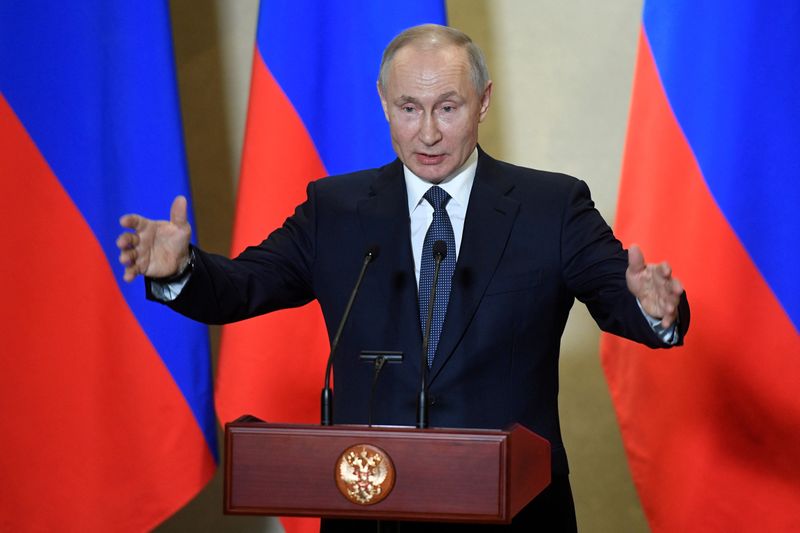MOSCOW (Reuters) - Russia is sending the United States medical equipment to help fight the coronavirus outbreak, the Interfax news agency reported on Tuesday, citing the Kremlin spokesman Dmitry Peskov.
President Vladimir Putin made the proposal in a phone conversation with President Donald Trump on Monday, when they discussed the coronavirus and oil markets, directing their energy ministers to speak.
"Trump gratefully accepted this humanitarian aid," Interfax quoted Peskov as saying. A Russian plane with medical and protective equipment may leave for the United States on Tuesday, he added.
Confirmed U.S. cases have surged to nearly 180,000 with 16,000 new positive tests reported on Tuesday. For a second day in a row, the United States recorded more than 500 new deaths as the total climbed to nearly 3,600, according to a Reuters tally of officially reported data.
The state of relations between Moscow and Washington has been complicated in recent years due to U.S. sanctions on some of Russian companies in response to Russia's annexation of Crimea in 2014 and Russian support for separatists in eastern Ukraine, among other strains.
In the process of agreeing on the details for the medical supply on Tuesday, "it seems that some on the American side at least did not contribute to the prompt resolution of technical issues in accordance with the agreements of the two presidents", Peskov was quoted as saying by Interfax.
"It is important to note that when offering assistance to the U.S. colleagues, the president (Putin) assumes that when U.S. manufacturers of medical equipment and materials gain momentum, they will also be able to reciprocate if necessary," he added.
He also said that Russia and China cooperated in a similar way now as "at a time when the current situation affects everyone without exception ..., there is no alternative to working together in a spirit of partnership and mutual assistance".

Washington has said that Trump and Putin agreed in the call it was important to stabilize the global energy markets. This helped to steady oil prices on Tuesday, which are still near 18-year lows as the coronavirus hits global demand.